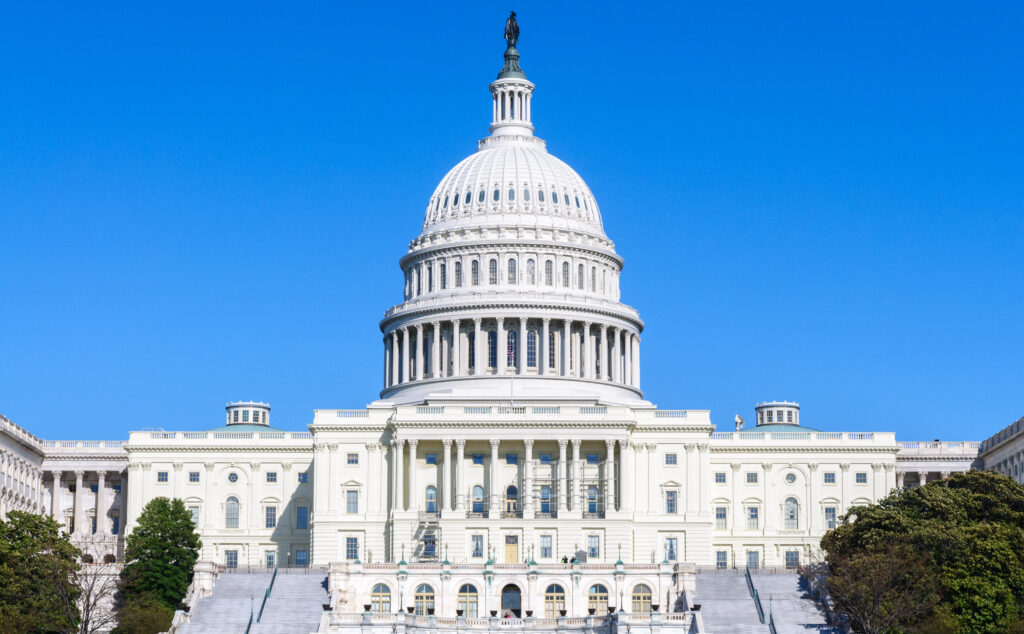National school choice bill advances out of US House committee
A law that would establish school choice nationwide is advancing in the House, but its fate remains uncertain.
The Educational Choice for Children Act of 2024, or H.R. 9462, passed the U.S. House…

A law that would establish school choice nationwide is advancing in the House, but its fate remains uncertain.
The Educational Choice for Children Act of 2024, or H.R. 9462, passed the U.S. House Ways & Means Committee last month, but whether it will come to the floor for a vote by the full chamber is unknown.
The bill was sponsored by Rep. Adrian Smith, R-Nebraska and Rep. Burgess Owens, R-Utah, and endorsed by Rep. Jason Smith, R-Missouri, who chairs the committee. This is the first time such a school choice bill has advanced out of a congressional committee.
“One of the best ways we can improve K-12 education is by putting the needs and diverse interests of families and students first,” Jason Smith said in a release announcing the bill’s passage out of the committee, which handles tax writing. “We have a responsibility to expand educational opportunities and parent choice for students trapped in schools that fail to help them succeed … [T]he Educational Choice for Children Act of 2024 will support low-income students through charitable contributions to scholarship funds.”
If passed, the legislation would create a tax credit for donations made to scholarship funds and organizations that grant scholarships to K-12 students. Similar programs have been set up in 23 states, but this would allow all Americans to participate, even if their state hasn’t enacted school choice.
Annual donations would be capped at $5,000, or 10% of adjusted gross income, whichever is greater.
Scholarship recipients would be from families earning 300% or less of the median income for their area. That’s $317,742 for a family of four in Missouri, based on a median income of $105,914. According to the U.S. Census Bureau, median incomes range from $83,000 in New Mexico to as high as $161,000 in Massachusetts for a family of four.
“A good education is foundational for a child’s success in life, but unfortunately many parents have little say over their children’s education due to where they live or how much they earn,” said Rep. Adrian Smith in the release. “This bill would change the educational landscape for families across the country by generating significant new investments in scholarships for K-12 tuition and educational resources.
“We have seen through the success of school choice initiatives across the country how empowering parents gives them – not the government – the freedom to decide where to send their children to school and to tailor their children’s education to their specific needs. I thank my Ways and Means colleagues for their support of this bill, and I look forward to its consideration by the full House.”
Congress is on hiatus this month because of the election and has a few weeks in session remaining this year. A spokesman for Adrian Smith told The Lion the congressman is “committed to continue fighting to enact the Educational Choice for Children Act to empower parental choice across the nation now, through the end of the legislative year, and if necessary, in the 119th Congress.”
School choice has gained momentum in recent years, with 17 states establishing educational savings accounts where state funds pass into an account parents can use to fund their child’s education. The money can be used to pay tuition, transportation and other educational expenses for public and private schools.
More than $1.8 billion has been awarded to date, benefiting more than 365,000 students nationwide, according to a summary compiled by Ways & Means. The programs chiefly benefit low-income families and many African American and Hispanic students, the summary says.
If approved, the nationwide pilot program would be capped at $5 billion annually over a four-year period.



